Top 10 Worst Canadian Prime Ministers
Sure, Canada might be famous for its pristine wilderness, exceptional healthcare, and an uncanny politeness of its citizens, but that doesn't mean it's immune to political blunders. And, boy, do we have a compilation that highlights exactly that.You’ve been invited to weigh in on a slightly different kind of question: Who are the worst Canadian Prime Ministers? Now, this isn't a rundown of folks who didn't leave their respective offices with sky-high approval ratings or those who just ruffled some feathers. We're going beyond the veneer of politics, peering into the annals of Canadian history, to highlight Prime Ministers whose leadership, decisions, and actions - or lack thereof - left many of their compatriots shaking their heads in despair or frustration. Those leaders who, despite their best intentions, or perhaps because of their worst ones, found themselves in the unfortunate situation of steering the ship of state off course, or into the occasional iceberg.
But hey, before you start rolling your eyes or muttering about the unfairness of it all, let us clarify - this is not about character assassination or scoring cheap political points. This is about genuine historical perspective and public sentiment, about lessons learned, and about shedding light on those moments when Canada's highest office was occupied by someone who, let's just say, didn't quite rise to the occasion.
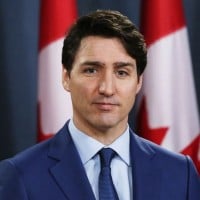 With Justin Trudeau, the criticisms are multifold. His tenure saw a few ethical breaches that tarnished his reputation, not least among them being the SNC-Lavalin scandal. Additionally, his inability to balance environmental and economic interests was a constant source of public dissatisfaction.
With Justin Trudeau, the criticisms are multifold. His tenure saw a few ethical breaches that tarnished his reputation, not least among them being the SNC-Lavalin scandal. Additionally, his inability to balance environmental and economic interests was a constant source of public dissatisfaction. Justin is a very self-centered person who has no leadership skills. His experience as a kindergarten teacher should have never allowed him to become the leader of Canada. I do not understand why he is getting any seat support at all. His arrogance made him an "all about me" person. His way of saying oops every time he makes another screwup across Canada makes everybody embarrassed to say he is a leader of Canada. Justin holds no accountability to himself or the Liberal Party.
The continuous corruption that he continues to practice is frustrating, and he continues to use his Prime Minister role as a way to deter the conflicts that he does, especially with the SNC scandal. Justin has done the exact same thing as his "Dad" with separating Canada. The Liberal party as a whole has been nothing but a separatist party without admitting it. Every time another Liberal Leader takes over the Prime Minister position, they create division across Canada. Why do they do that, I don't know. It is probably due to the amount of seats in Quebec and Ontario.
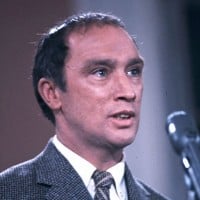 Pierre Elliott Trudeau, Justin's father, faced significant critiques. His implementation of the War Measures Act during the October Crisis was viewed by many as a severe infringement on civil liberties. Moreover, his handling of economic issues led to high inflation and unemployment rates.
Pierre Elliott Trudeau, Justin's father, faced significant critiques. His implementation of the War Measures Act during the October Crisis was viewed by many as a severe infringement on civil liberties. Moreover, his handling of economic issues led to high inflation and unemployment rates. History already tells a concerning legacy of this pompous Quebec global elite. He was a Marxist who greatly favored authoritarian rule and tested the possibilities in Canada more than once. He was a member of the Club of Rome. He contributed to skyrocketing inflation in the 80s by massive government spending of taxpayer dollars, creating staggering federal debt.
The western provinces were inconsequential and simply viewed as a revenue resource for the Quebec empire to exploit. He was an arrogant man who was poor at achieving consensus on so many issues, including our constitution. He openly admired communist regimes and loved visiting China.
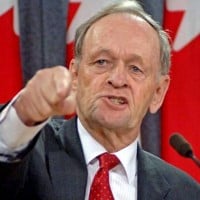 Jean Chrétien's tenure was marred by the Sponsorship Scandal, one of the most significant political scandals in Canadian history. He also faced backlash for his refusal to participate in the Iraq War, which led to a diplomatic rift with the United States.
Jean Chrétien's tenure was marred by the Sponsorship Scandal, one of the most significant political scandals in Canadian history. He also faced backlash for his refusal to participate in the Iraq War, which led to a diplomatic rift with the United States. Jean Corruptien is a perfect way to address this self-serving Quebec prime minister. He is certainly known for serving himself first, his riding second, and then Quebec. Other than Ontario votes, the rest of Canada was irrelevant, as is typical of Quebec-based prime ministers. Except for the exploitation of other provinces' resources, of course.
He was deeply in bed with the Chinese government and would have sold out Canada for personal profit. Huawei theft of Nortel networks, Sidewinder report, promoting Canada as the uranium waste dumping ground for the world. Canada needs some kind of ethics test candidates for prime minister must pass.
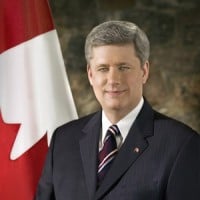 Stephen Harper's time as PM wasn't without controversy. Accused of muzzling scientists, he was seen as stifling Canada's reputation as a leader in scientific research. Also, his approach to foreign policy, specifically his uncompromising support of Israel, attracted widespread criticism.
Stephen Harper's time as PM wasn't without controversy. Accused of muzzling scientists, he was seen as stifling Canada's reputation as a leader in scientific research. Also, his approach to foreign policy, specifically his uncompromising support of Israel, attracted widespread criticism. Put himself above his office and above his duty to serve Canada. He became his own focal point. The military loved him because he kept them in wars in Iraq and Afghanistan. Corporate tax cuts creating the groundwork for unbridled corporate greed. Bill C-51. Mike Duffy.
Cut support for veterans, impoverished a large number of industries to support corporate takeovers, and sold Canada to the Chinese. Got us in bed with the WEF and gutted the agriculture sector. If you're anti-conservative, you'll hate him for moving his party further on the axis towards racism, extortion, hypocrisy, and outdated economics that only benefit a select few donors.
If you're pro-conservative, you'll hate him for being everything you dislike about Justin Trudeau, but somehow statistically worse in every regard except "total debt generated." Even in that, he still places second and out-costed us more than 36 other prime ministers combined.
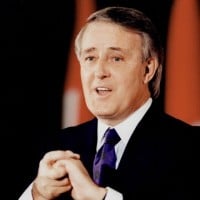 Brian Mulroney had a challenging time during his term. His decision to introduce the Goods and Services Tax (GST) was met with significant public outcry. Mulroney's push for Meech Lake and Charlottetown Accords, both of which failed, were seen as divisive missteps.
Brian Mulroney had a challenging time during his term. His decision to introduce the Goods and Services Tax (GST) was met with significant public outcry. Mulroney's push for Meech Lake and Charlottetown Accords, both of which failed, were seen as divisive missteps. Not nearly the most corrupt on this list but likely the most corrupt Conservative.
The great Free Trade! How's that going?
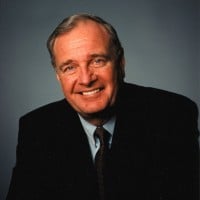 Paul Martin faced condemnation for his handling of fiscal matters. The federal sponsorship scandal, which began under his predecessor, Jean Chrétien, cast a long shadow over his tenure. His failure to deliver on many campaign promises also led to public disillusionment.
Paul Martin faced condemnation for his handling of fiscal matters. The federal sponsorship scandal, which began under his predecessor, Jean Chrétien, cast a long shadow over his tenure. His failure to deliver on many campaign promises also led to public disillusionment.
 Kim Campbell, Canada's first and only female prime minister, was heavily criticized for her perceived lack of leadership during the 1993 general election. The infamous campaign ad attacking Jean Chrétien's appearance was a major public relations disaster.
Kim Campbell, Canada's first and only female prime minister, was heavily criticized for her perceived lack of leadership during the 1993 general election. The infamous campaign ad attacking Jean Chrétien's appearance was a major public relations disaster. Easily. Not really her fault though, she only ran for a few months.
Did not do anything for this country. Lost her seat in a landslide in 1993, so shame on Campbell. We do not think she would be the first woman PM. She disgraced me.
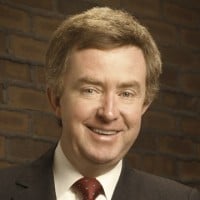 Joe Clark was in office for a relatively short period, but his decision to attempt to increase gasoline taxes during an economic downturn was roundly criticized. His inability to maintain the confidence of the House also led to his downfall.
Joe Clark was in office for a relatively short period, but his decision to attempt to increase gasoline taxes during an economic downturn was roundly criticized. His inability to maintain the confidence of the House also led to his downfall. Served less than one year between 1979-1980.
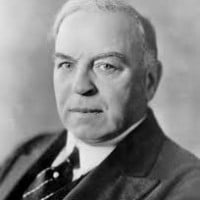 William Lyon Mackenzie King, despite being the longest-serving prime minister, was criticized for his response to the Great Depression. His reluctance to provide federal assistance during the crisis led to widespread hardship. His indecisiveness and alleged communication with the spiritual world also raised eyebrows.
William Lyon Mackenzie King, despite being the longest-serving prime minister, was criticized for his response to the Great Depression. His reluctance to provide federal assistance during the crisis led to widespread hardship. His indecisiveness and alleged communication with the spiritual world also raised eyebrows. An anti-Semite whose government did not allow Jews fleeing Hitler into the country. In his Canada, the Magna Carta was trampled on, communists were outlawed, Quebec's Padlock Laws were enforced, he trusted Hitler, did not do anything about Danny Draper, led the nation with "visions" and crystal balls, ignored the Depression, and more.
He should be first but surprisingly he is not in the top ten list. I mean, at least put him in third.
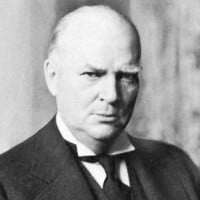 R.B. Bennett's response to the Great Depression was widely criticized. His 'Imperial Preference' policy, designed to bolster trade within the British Empire, was seen as a significant failure. Bennett's attempts to censor the press and his harsh treatment of 'On to Ottawa Trek' protestors were other notable criticisms.
R.B. Bennett's response to the Great Depression was widely criticized. His 'Imperial Preference' policy, designed to bolster trade within the British Empire, was seen as a significant failure. Bennett's attempts to censor the press and his harsh treatment of 'On to Ottawa Trek' protestors were other notable criticisms. The worst. Was not a bad guy or ruthless or tyrannical, just not a good politician and made everything worse during the Great Depression.
Government efforts during the depression just made matters worse.
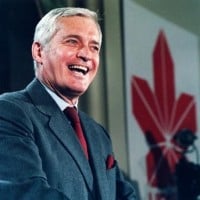 John Turner's stint as Prime Minister was short, but not without criticisms. His decision to recommend the patronage appointments of several Senators and judges tarnished his image. Plus, his underestimation of Brian Mulroney in the 1984 televised debate cost him dearly.
John Turner's stint as Prime Minister was short, but not without criticisms. His decision to recommend the patronage appointments of several Senators and judges tarnished his image. Plus, his underestimation of Brian Mulroney in the 1984 televised debate cost him dearly.
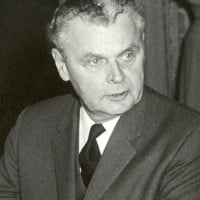 John Diefenbaker faced significant backlash during his term. His handling of the Cuban Missile Crisis and his decision to cancel the Avro Arrow project led to public and political discontent. He was also criticized for his confrontational relationship with the US administration.
John Diefenbaker faced significant backlash during his term. His handling of the Cuban Missile Crisis and his decision to cancel the Avro Arrow project led to public and political discontent. He was also criticized for his confrontational relationship with the US administration.
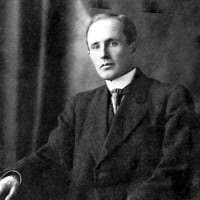 Arthur Meighen's hardline stance during the Winnipeg General Strike caused considerable controversy. His government's use of the War Measures Act to imprison strike leaders was considered by many to be an excessive use of force. His lack of public charisma also didn't help his popularity.
Arthur Meighen's hardline stance during the Winnipeg General Strike caused considerable controversy. His government's use of the War Measures Act to imprison strike leaders was considered by many to be an excessive use of force. His lack of public charisma also didn't help his popularity.
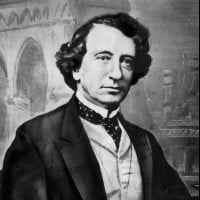 John A. Macdonald, Canada's first prime minister, wasn't immune to criticisms. His government's involvement in the Pacific Scandal hurt his reputation. Moreover, his treatment of Indigenous people and his role in the execution of Louis Riel remain contentious points in Canadian history.
John A. Macdonald, Canada's first prime minister, wasn't immune to criticisms. His government's involvement in the Pacific Scandal hurt his reputation. Moreover, his treatment of Indigenous people and his role in the execution of Louis Riel remain contentious points in Canadian history.
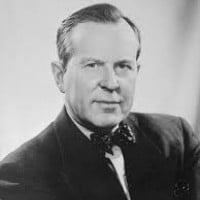 Lester Pearson, despite his many accomplishments, was not without his detractors. His government's handling of the Flag Debate was considered divisive by some. Moreover, his inability to win a majority government in two attempts reflected public ambivalence about his leadership.
Lester Pearson, despite his many accomplishments, was not without his detractors. His government's handling of the Flag Debate was considered divisive by some. Moreover, his inability to win a majority government in two attempts reflected public ambivalence about his leadership.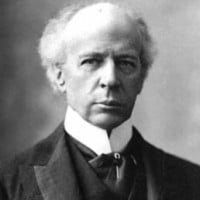 Wilfrid Laurier had his share of controversies. His handling of the Boer War, where he tried to appease both English and French-speaking Canadians, was seen as a weak compromise. His reciprocity agreement with the United States was also a contentious issue.
Wilfrid Laurier had his share of controversies. His handling of the Boer War, where he tried to appease both English and French-speaking Canadians, was seen as a weak compromise. His reciprocity agreement with the United States was also a contentious issue. Aside from the Trudeaus, Laurier likely was one of the biggest enemies of Western Canada. When the west was being settled he did everything in his power to ensure that they would never be anywhere near equal. He effectively made Western Canada a colony within a colony.
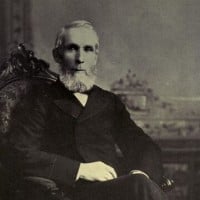 Alexander Mackenzie's administration was heavily criticized for its perceived lack of vision and progress. The slow growth of the economy and his inability to complete the Pacific Railway were significant points of critique.
Alexander Mackenzie's administration was heavily criticized for its perceived lack of vision and progress. The slow growth of the economy and his inability to complete the Pacific Railway were significant points of critique.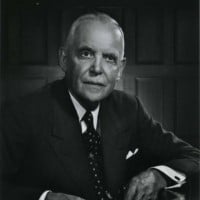 Louis St. Laurent was often criticized for his top-down leadership style. His handling of the Korean War, specifically the decision to send troops, was controversial. Additionally, the pipeline debate during his term ignited political tensions.
Louis St. Laurent was often criticized for his top-down leadership style. His handling of the Korean War, specifically the decision to send troops, was controversial. Additionally, the pipeline debate during his term ignited political tensions.
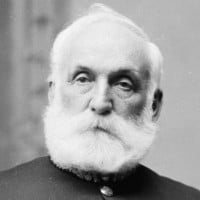 Mackenzie Bowell's tenure was fraught with criticisms. His inability to solve the Manitoba Schools Question led to significant unrest within his own cabinet. His leadership was seen as weak and indecisive, leading to his eventual resignation.
Mackenzie Bowell's tenure was fraught with criticisms. His inability to solve the Manitoba Schools Question led to significant unrest within his own cabinet. His leadership was seen as weak and indecisive, leading to his eventual resignation.